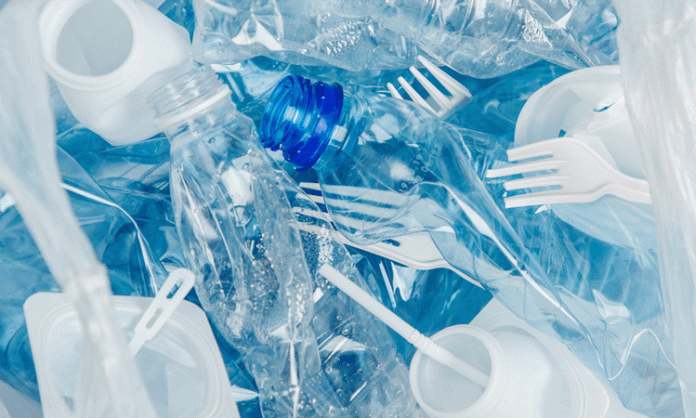
ILOILO City – Mayor Jerry Treñas has banned single-use plastics from city hall and public parks.
Single-use plastic items “pollute waterways, kill marine life and contribute to our country’s increasing solid waste,” he pointed out in a memorandum order.
The prohibition, Treñas added, was in
line with the city government’s “solid waste avoidance and minimization
strategy.”
His memo was addressed to all city government departments and offices and city
hall employees.
It was issued after the National Solid Waste Management Commission (NSWMC) came
out with Resolution No. 1363-2020 directing the Department of Environment and
Natural Resources (DENR) to prepare and implement specific guidelines that
would ban single-use plastics in all offices of government.
The ban would cover cups less than 0.2 millimeter thick, drinking straws, stirrers, plastic utensils, “labo” or thin and translucent plastic bags and thin-filmed sando bags under 15 microns.
Emphasizing the need to curb plastic
pollution, Treñas noted the considerable volume of plastic thrash regularly
being collected from the Iloilo Esplanade and public plazas.
“Kadamo gid sang basura dira pirmi nga
ginatipon,” he said.
The City Environment and Natural Resources Office will enforce the ban.
The United Nations has estimated that land-based sources, including plastic waste that has been blown into rivers and creeks by wind, are responsible for 80 percent of the world’s marine debris.
Treñas’ memo was not the first time the city government moved to ban plastic materials. In July 2017 the city government then under Mayor Jed Patrick Mabilog started enforcing Regulation Ordinance No. 2013-403 that prohibited the use of non-biodegradable plastic bags.
The ordinance was actually approved on Oct. 8, 2013 yet but establishments were given four years to gradually comply.
Under the ordinance, violators would be penalized with a P500 fine and the confiscation of non-biodegradable plastics on first offense; P700 fine, confiscation of non-biodegradable plastic bags and suspension of business permit for one week on second offense; and P1,000 fine, confiscation of plastic bags and cancellation of business permit on third offense.
“No establishment, ambulant or itinerant vendors, market vendors, and the like shall utilize or provide plastic bags as packaging material to customers,” read part of the ordinance.
Covered by the ordinance were sari-sari (variety) stores, market vendors, hawkers or bolanteros, supermarkets, department stores/malls, groceries or restaurants, canteens, fast-food chains, bakeries, coffee shops, hotels, catering services, and other similar establishments.
However, the ordinance permits some items with no handles, holes or strings to be packed in plastic bags, provided the wrappers do not exceed 8 inches in width and 12 inches in length in its unexpanded form.
Such items were food “with consistency,” including hot or cold cooked food, such as those sold in restaurants, carinderias and the like, and items such as flour, sugar, coffee, oil, soy sauce, vinegar, ice, ice candy, and the like.
The “indiscriminate use and disposal of plastics” has “deleterious effects,” the regulation ordinance stated.
In addition, all establishments were required to post notices in conspicuous places within their premises bearing the words, “This is an environment-friendly store. Please bring your own reusable shopping bags (Iloilo City Plastic Bag Ordinance).”
The ordinance encouraged the use of alternative packaging materials such as reusable bags, woven bags, cloth bags, rattan baskets, shopping bags made of recycled waste paper, and other bags made of biodegradable materials like banana leaves, water lily and corn stalk, among others.
Establishments were also urged to devise and provide incentives for the use of environment-friendly packaging or wrapping materials which may include the establishment of a “point system scheme” or “express lane” for customers.
Meanwhile, DENR undersecretary for Solid Waste Management Benny Antiporda defended the NSWMC for initially including only eight single-use plastic items in the ban.
“It was the decision of the NSWMC to come up with a balanced judgment on the use of single-use plastics by taking into consideration that we can only ban those that have available alternatives,” explained Antiporda.
The DENR official cited Section 29 of Republic Act (RA) 9003 or the Ecological Solid Waste Management Act of 2000, which provides that “‘non-environmentally acceptable products shall not be prohibited unless the [NSWMC] first finds that there are alternatives which are available to consumers at no more than 10 percent greater cost than the disposable product.”
Created by RA 9003, NSWMC is an inter-agency body under the Office of the President mandated to oversee the implementation of solid waste management plans and prescribe policies to achieve the law’s objectives.
Aside from the DENR, the NSWMC is also composed of the Department of Agriculture, Department of the Interior and Local Government, Department of Public Works and Highways, Department of Science and Technology, and Department of Trade and Industry.
Other members include the League of Cities of the Philippines, Metropolitan Manila Development Authority, Philippine Information Agency, Technical Education and Skills Development Authority, and representatives from the recycling and manufacturing/packaging sectors./PN



